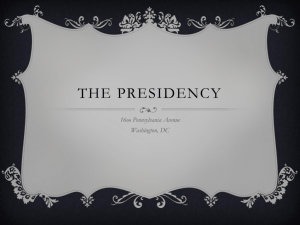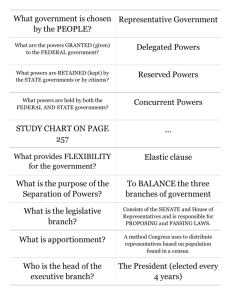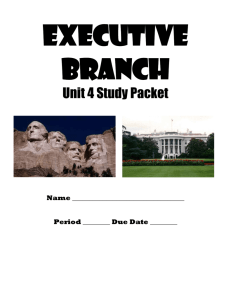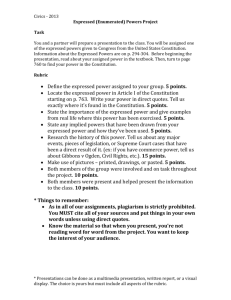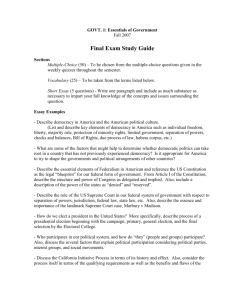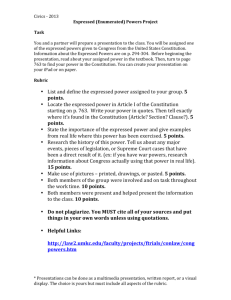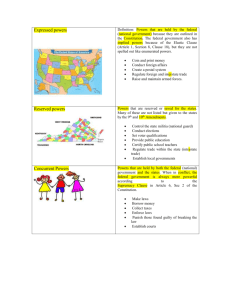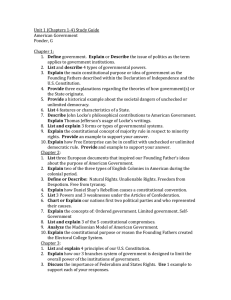ESSENTIAL COURT CASES FOR AP GOVERNMENT
advertisement
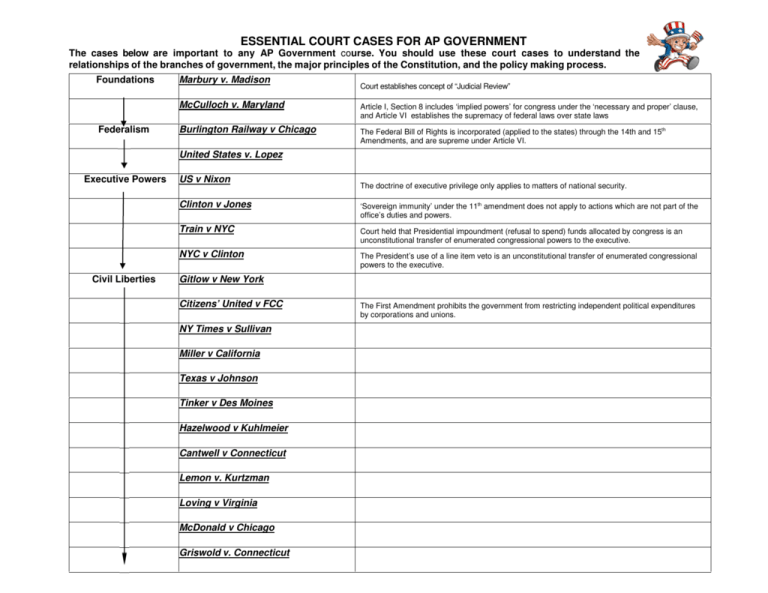
ESSENTIAL COURT CASES FOR AP GOVERNMENT The cases below are important to any AP Government course. You should use these court cases to understand the relationships of the branches of government, the major principles of the Constitution, and the policy making process. Foundations Federalism Marbury v. Madison Court establishes concept of “Judicial Review” McCulloch v. Maryland Article I, Section 8 includes ‘implied powers’ for congress under the ‘necessary and proper’ clause, and Article VI establishes the supremacy of federal laws over state laws Burlington Railway v Chicago The Federal Bill of Rights is incorporated (applied to the states) through the 14th and 15th Amendments, and are supreme under Article VI. United States v. Lopez Executive Powers Civil Liberties US v Nixon The doctrine of executive privilege only applies to matters of national security. Clinton v Jones ‘Sovereign immunity’ under the 11th amendment does not apply to actions which are not part of the office’s duties and powers. Train v NYC Court held that Presidential impoundment (refusal to spend) funds allocated by congress is an unconstitutional transfer of enumerated congressional powers to the executive. NYC v Clinton The President’s use of a line item veto is an unconstitutional transfer of enumerated congressional powers to the executive. Gitlow v New York Citizens’ United v FCC NY Times v Sullivan Miller v California Texas v Johnson Tinker v Des Moines Hazelwood v Kuhlmeier Cantwell v Connecticut Lemon v. Kurtzman Loving v Virginia McDonald v Chicago Griswold v. Connecticut The First Amendment prohibits the government from restricting independent political expenditures by corporations and unions. ESSENTIAL COURT CASES FOR AP GOVERNMENT Civil Liberties (cont.) Roe v. Wade Planned Parenthood v Casey Cruzan v Missouri Health Civil Rights Mapp v Ohio . Procedural Due Process US v Leon Maryland v King Benton v Maryland Kelo v City of New London Miranda v Arizona Gideon v Wainwright Gregg v Georgia Roper v Simmons Civil Rights Plessy v. Ferguson Substantive Due Process Brown v. Board of Education Swann v Charlotte-Mecklenburg California Regents v. Bakke Grutter v. Bollinger Baker v Carr Lawrence v. Texas Obergefell v Hodges The 14th Amendment requirement of equal protection guarantees ‘one man, one vote”, and mandates that voting districts be “equal, compact, contiguous, and non-discriminatory”..

